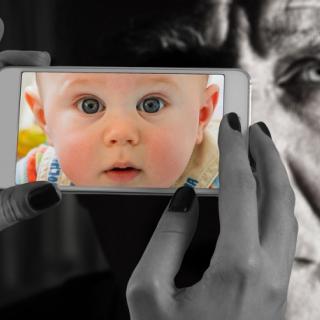Focus on: Citizenship Education in the age of likes, hashtags and memes

"A society that cuts itself off from its youth severs its lifeline". Kofi Annan
What role should education play in developing active, informed and responsible citizens? As Eurydice's recent report on citizenship education demonstrates, many countries are currently asking this question. Their policies on the topic are usually broad in scope, targeting citizenship education in general. But in an age where new digital technologies are ever present and exerting influence over many aspects of our thinking and behaviour, what should be done specifically about digital citizenship? As technology has an increasingly strong impact on our lives, the focus should be on our young people: they need the skills to interact politically and socially in an engaged, respectful and positive manner within the virtual society that surrounds us. But are teachers capable of assuming this responsibility?
Technology now invades all aspects of our lives. With 300 million active monthly Skype users, more than 1.3 billion WhatsApp users and 2.07 billion Facebook users, very few people can avoid using social media as a means to communicate with friends and family, or with the workplace and wider society. Young people are by far the most active users of social media, and in particular of smartphone messaging apps. Younger generations are therefore key in shaping the future of our interaction with technology. They have grown up in this world where everything is available at the click of a button or the touch of a screen, and terms such likes, hashtags and memes are now part of their everyday vocabulary.
Technology has also ingrained itself into our educational and civic behaviour. Most students will use some online medium as part of their learning – whether for seeking information, submitting assignments, or following online courses. Young people are often the least active age-group when it comes to voting, although the recently published International Civic and Citizenship Education Study found that 86 % of 15 year olds intend to vote in elections when they reach the voting age. Nevertheless, the 2013 and 2015 Eurobarometers have noted that young people increasingly favour virtual platforms over elections as a more effective way of making their voice heard.
Digitalisation is not only affecting civic behaviour but is even changing the way our brains work; we think and react faster, but have much less attention span than we did in the olden days before Google. This affects the way we interact with people online. We can unintentionally say hurtful things as we reply too fast or because the receiver cannot tell the sender's emotion from a screen. It is also easier to create intentional harm; cyberbullying (most commonly via Facebook and Instagram) is a relatively new but rapidly increasing phenomenon which, apart from making children feel isolated, can in some cases lead to depression and even suicide.
Many organisations have become involved in this debate; most notable has been the Council of Europe who launched their project on digital citizenship in 2016. After a wide ranging review of the role of teachers, the Council of Europe presented some recommendations, such as the need to better define digital citizenship and related terms, to outline the responsibilities of parents, teachers and digital citizens themselves, and to continue observing emerging trends and their consequences. This project underlined the need to raise awareness on how important it is to contextualise citizenship education in this digital age.
While teachers clearly have a key role to play in guiding students through increasingly complex digital jungles, how can they realistically equip themselves? Whilst there might be hundreds of online forums and teaching support material available, many teachers will still be less familiar with online platforms and social media than the students they are teaching. And as new digital spaces emerge it is the younger generations that will be the first to explore and develop them.
One thing that is certain is that we need to do more to promote and encourage responsible digital citizenship behaviour. Whilst we cannot wrap children in cotton wool, we can educate them to be more aware of the impact of different technologies, and the consequences of their actions and digital choices.
Authors: Lydia Stoddart and David Crosier




